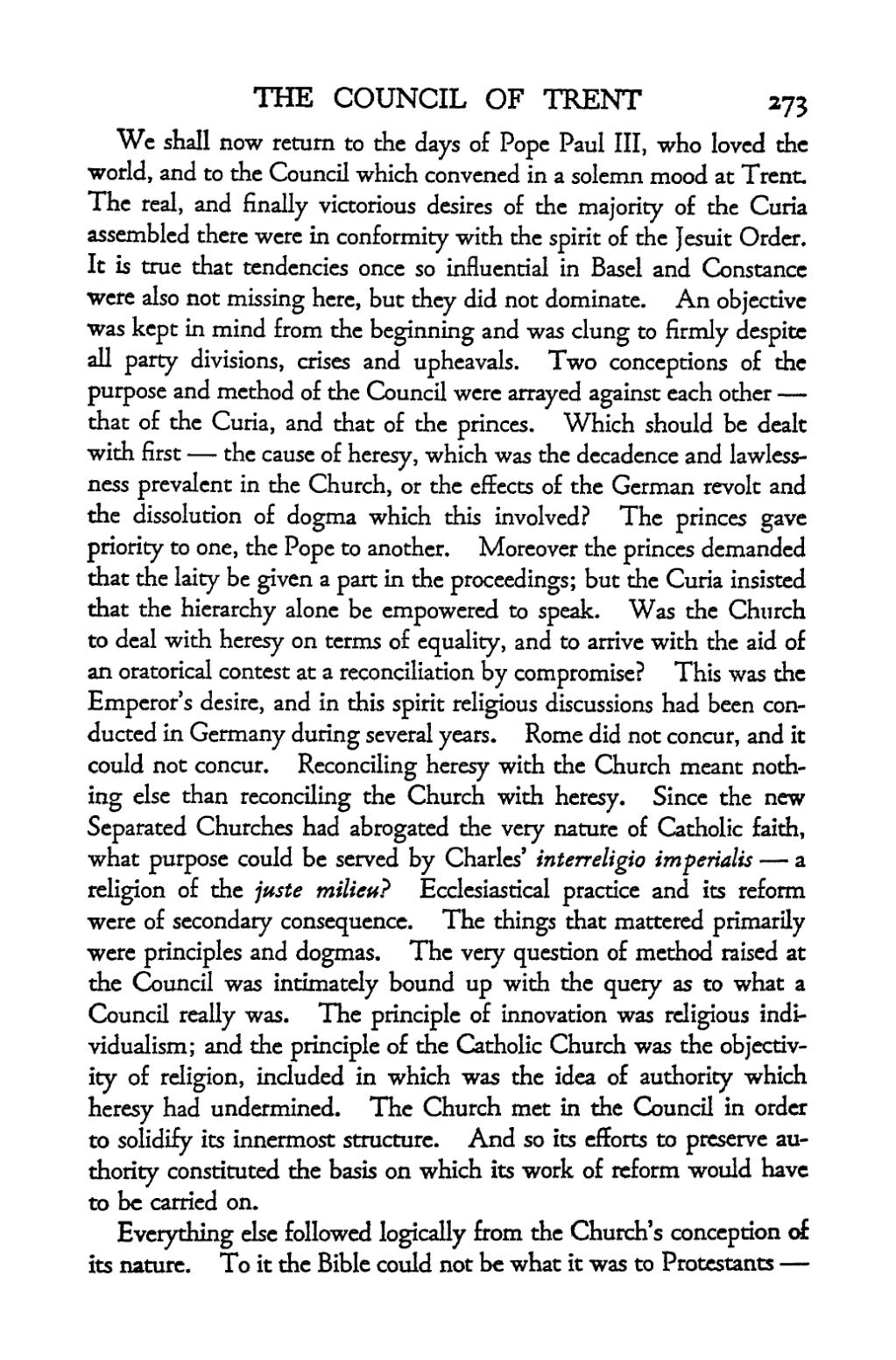COUNCIL OF TRENT 273
We shall now return to the days o Pope Paul III, who loved the world, and to the Council which convened in a solemn mood at Trent. The real, and finally victorious desires o the majority of the Curia assembled there were in conformity with the spirit of the Jesuit Order. It is true that tendencies once so influential in Basel and Constance were also not missing here, but they did not dominate. An objective was kept in mind from the beginning and was clung to firmly despite all party divisions, crises and upheavals. Two conceptions of the purpose and method of the Council were arrayed against each other that of the Curia, and that of the princes. Which should be dealt with first the cause of heresy, which was the decadence and lawless- ness prevalent in the Church, or the effects of the German revolt and the dissolution of dogma which this involved? The princes gave priority to one, the Pope to another. Moreover the princes demanded that the laity be given a part in the proceedings; but the Curia insisted that the hierarchy alone be empowered to speak. Was the Church to deal with heresy on terms of equality, and to arrive with the aid of an oratorical contest at a reconciliation by compromise? This was the Emperor's desire, and in this spirit religious discussions had been con- ducted in Germany during several years. Rome did not concur, and it could not concur. Reconciling heresy with the Church meant noth- ing else than reconciling the Church with heresy. Since the new Separated Churches had abrogated the very nature of Catholic faith, what purpose could be served by Charles* interreligio imperial** a religion of the juste milieu? Ecclesiastical practice and its reform were of secondary consequence. The things that mattered primarily were principles and dogmas. The very question of method raised at the Council was intimately bound up with the query as to what a Council really was. The principle of innovation was religious indi- vidualism; and the principle of the Catholic Church was the objectiv- ity of religion, included in which was the idea of authority which heresy had undermined. The Church met in the Council in order to solidify its innermost structure. And so its efforts to preserve au- thority constituted the basis on which its work of reform would have to be carried on.
Everything else followed logically from the Church's conception o its nature. To it the Bible could not be what it was to Protestants
274
